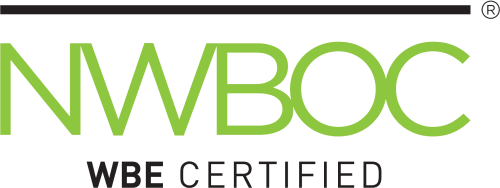Employees Feel Pressure to Perform, But Unclear About How To Be Successful
Boston, Mass., August 26, 2020 – As the COVID-19 pandemic and working from home continues, new research finds that Greater Boston employees lack a clear understanding of their work performance expectations. At the same time, most Boston employees feel significant pressure to perform well and provide value. This disconnect creates clear performance management challenges for Boston-area employers in terms of managing employees to drive business results, particularly when so many employees continue to work virtually.
These findings are contained in The 2020 Eagle Hill Consulting Boston COVID-19 Performance Management Survey. This survey supplements a recent national survey conducted by Eagle Hill. In some cases, the findings were more troubling for Boston employers as compared to national employee sentiment.
“There are massive workforce ramifications stemming from the COVID-19 disruption. And perhaps one of the most concerning issues to address is performance management,” says Jonathan Gove who leads Eagle Hill Consulting’s Boston office. “Quite frankly, performance management reinvention already was long overdue for many organizations. The pandemic may serve as a catalyst for much-need improvements to performance management programs so they do what they should: drive business value. Smart leaders in Greater Boston are thinking now about this issue rather than waiting until the end of the year, the ‘traditional’ time for performance reviews,” says Gove.
“Our research shows that there is a pressing need for Boston employers to implement performance management changes. Employees are committed to high quality outcomes, but don’t know what personal success looks like. Also, there is little coaching and mentoring, and a lack of communication about careers goals. All of this can spell trouble over the long-term not only for employee engagement and retention, but also for business success,” Gove explained.
Key findings among Greater Boston-area workers polled are as follows:
- Only 29 percent of Boston employees say they know what success looks like in their current role.
- More than half (57 percent) say the nature of their day-to-day activities has changed in the wake of COVID-19. This number is substantially higher than the national data that finds 36 percent of workers have experienced changed.
- Nearly half (48 percent) of Boston employees say the expectations for what they need to accomplish day-to-day have changed, substantially higher than the national polling (28 percent).
- Only about one quarter of Boston employees (28 percent) see a long-term future with their employer.
- Very few (11 percent) Boston workers polled are having long-term career discussions with their supervisors.
- Only 19 percent are receiving coaching and mentoring from their supervisors.
- More than half of Boston employees who are working remotely feel more pressure to perform well in their role (56 percent) and more pressure to provide their value (54 percent) as a result of the COVID-19 crisis. This pressure is higher than the national numbers, at 43 percent and 40 percent, respectively.
- Sixty percent of Boston employees who are working remotely are more committed to achieving quality outcomes as a result of the COVID-19 crisis. That’s higher than remote workers across the nation who reported increased commitment at 46 percent.
There are ways that Boston employers can seize on the COVID-19 crisis as an opportunity to reinvent performance management.
- Implement frequent real-time development conversations. This is a strategy that is becoming a business trend. It means shifting from an end-of-year performance process or streamlining that process. Instead, employers can implement real-time development, providing continuous feedback and support on a weekly basis to employees.
- Act on performance data. Many organizations collect quantitative performance data, but do nothing with it. Instead, employers can develop structures to enable action. For example, convening quarterly talent reviews to closely examine performance extremes – top performers and low performers – followed by targeted data-driven strategies to improve employee performance.
- Get creative with employee communication. Taking on performance management can be more complex when implemented virtually, and communication is fundamental to success. Leaders must get creative to make sure their messages stand out, particularly in a virtual environment. Approaches like storytelling can focus employee attention, as do employee podcasts that dive into performance management topics.
The 2020 Eagle Hill Consulting Boston COVID-19 Performance Management Survey was conducted online by Ipsos from May 21-26, 2020. The survey included 505 respondents from a random sample of employees in the Greater Boston Metro Area, polling respondents on performance management needs amid COVID-19.
Eagle Hill Consulting LLC is a woman-owned business that provides unconventional management consulting services in the areas of Strategy & Performance, Talent, and Change. The company’s expertise in delivering innovative solutions to unique challenges spans across the private, public, and nonprofit sectors, from financial services to healthcare to media & entertainment. Eagle Hill has offices in the Washington, D.C. metropolitan area, Boston, MA and Seattle, WA. More information is available at www.eaglehillconsulting.com.
Media Contact:
Susan Nealon | 703.229.8600 | snealon@eaglehillconsulting.com | @WeAreEagleHill

